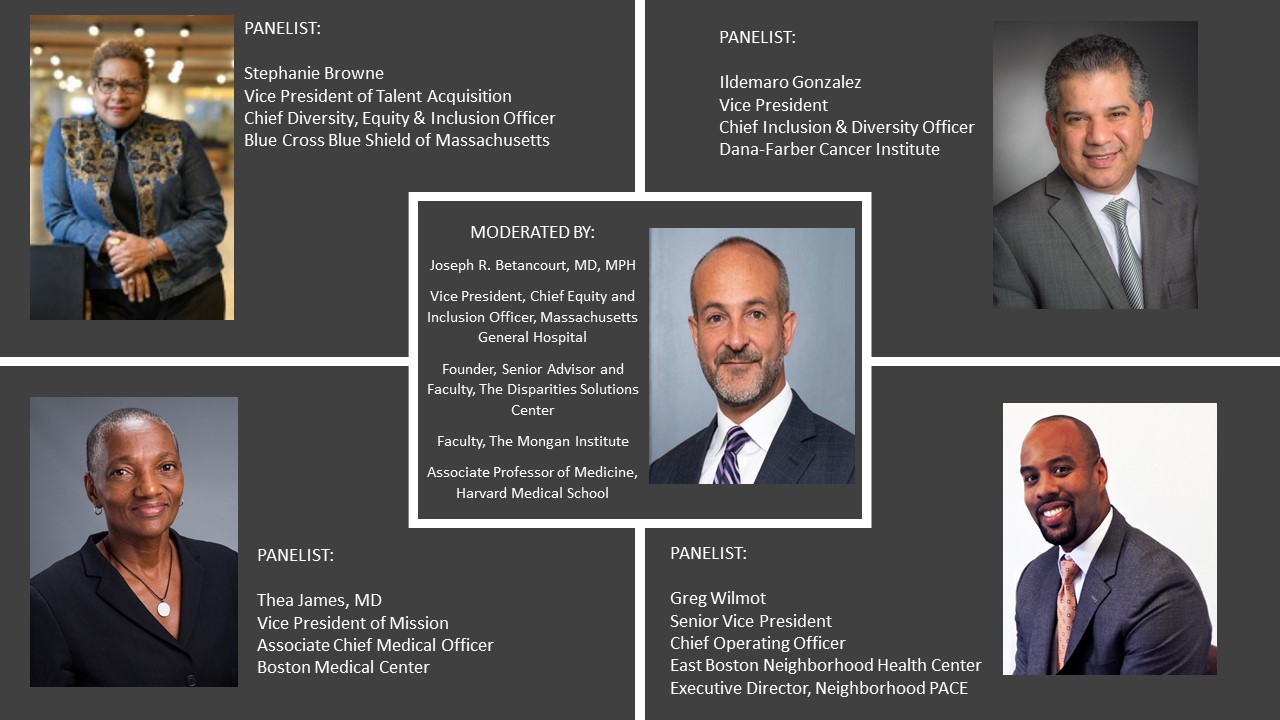
- This event has passed.
Building Healthcare for the Future: ACHE of MA’s Virtual Fall Conference Series
November 10, 2020 @ 5:00 pm - December 1, 2020 @ 7:00 pm
“Building Healthcare for the Future”
ACHE of MA’s Re-Imagined Fall Conference Series
Register now to join us as we pivot to a dynamic virtual three part series!
If you missed the first session, you can still register to watch the other two live and receive Session 1 on demand!
This program has been approved for 6.0 hours of ACHE Qualified Education credits!
Session 1 – Tuesday, November 10, 2020
5:00 pm – 7:00 pm
Closing the Racial and Socioeconomic Divide: Re-imagining a Healthcare Delivery System that Addresses the Needs of All Americans
*Presentation of the 2nd Annual D&I Award to be done during this session!*
Session 2 – Tuesday, November 17
5:00 pm – 7:00 pm
Closing the Innovation Gap: How COVID-19 Will Accelerate Digital Transformation and Drive a More Value-Driven Approach to Healthcare Delivery
Session 3 – Tuesday, December 1
5:00 pm – 7:00 pm
Closing the Payment Gap: Fundamental Transformation in Healthcare Delivery is Predicated on Innovation in Payment Models
COVID-19 – our most recent and still ongoing healthcare challenge – has come with misery, death, hardship, uncertainty and economic challenge. For diverse communities, it has put a stark spotlight on the massive disparities they face in health conditions, access to care and further emphasized the need to pay more attention to the social determinants of health. Compounding the coronavirus challenges, horrifying acts of racism and violence against people of color were publicly exposed, putting yet another spotlight on inequities that have existed in our country for centuries and establishing without a doubt, that racism is a public health crisis.
As the pandemic merged individual and societal needs, providers, healthcare leaders, insurance companies, government and citizens did what had to be done despite all of the existing barriers. The entire healthcare community came together to innovate and effectively transform care as never before. Healthcare organizations focused on mission, temporarily disregarding the skyrocketing treatment expenses and loss of revenue that are significantly impacting their financial viability. We also witnessed daily humanism and heroism in every community and organization. Doctors, nurses, provider teams, support staff and essential workers rose to the challenge, putting their own lives and health in jeopardy beyond normal limits.
The uncertainty of the crisis bred innovation and caused major transformations in the healthcare system. As healthcare leaders where do we go from here? Will we revert to old methods or will this moment provide the catalyst to make meaningful change and re-imagine a health system that truly provides exceptional health to all regardless of race, creed, gender, sexual orientation, religion or economic circumstances and that focuses on the things that really matter?
This conference will explore:
— Why we must redesign our healthcare system and what this will take.
— What leading organizations, states and countries are doing to provide superior care to all at a lower cost.
— How government, payors, providers, and regulatory bodies can facilitate a redesigned healthcare system.
— The changing expectations and demands of patients and the public.
— A roadmap for the healthcare system of the future.
Join us at this remarkable point in history and support meaningful change.
If you missed the first session, you can still register to watch the other two live and receive Session 1 on demand!
REGISTRATION NOW LIVE –
CLICK HERE TO REGISTER!
ACHE, MHA and NESHS MEMBERS: $49.00
STUDENTS: $25.00
NON-MEMBERS: $99.00
Co-sponsored by the Massachusetts Health and Hospital Association
![]()
Session Details and Speakers:
Session 1 – Tuesday, November 10, 2020
5:00 pm – 7:00 pm
Closing the Racial and Socioeconomic Divide: Re-imagining a Healthcare Delivery System that Addresses the Needs of All Americans
To kick-off our series, Session 1 will feature a diversity, equity and inclusion virtual roundtable discussion featuring:


This session will also feature our 2nd Annual Diversity and Inclusion Award!
Click here to view the full agenda for November 10 and speaker bios!
Session 2 – Tuesday, November 17
5:00 pm – 7:00 pm
Closing the Innovation Gap: How COVID-19 Will Accelerate Digital Transformation and Drive a More Value-Driven Approach to Healthcare Delivery

This session will cover:
-Different models of healthcare that other industrialized nations are providing and if there is a system that the United States should consider replicating.
-Lessons learned from other countries who had different approaches in their COVID-19 response and had better health outcomes.
-How epidemiological surveillance data is used to improve public health systems in this country.
-What providers can be doing to prepare for the changes coming in our healthcare system.
-The potential impact that big data can have on improving healthcare, targeting of disease prevention and health promotion, and reducing cost.
Click here to view the full agenda for November 17 and speaker bios!
Session 3 – Tuesday, December 1
5:00 pm – 7:00 pm
Closing the Payment Gap: Fundamental Transformation in Healthcare Delivery is Predicated on Innovation in Payment Models
This session will feature a closing keynote presented by:
Dr. Farzad Mostashari, CEO of Aledade


